10 Stunning Yantra Designs for Deep Meditation and Enhanced Focus
Yantra is a geometric diagram or symbol used in Hindu and Buddhist spiritual practices as a tool for meditation and concentration. It is believed that the intricate patterns and shapes of the yantra can help focus the mind and lead to a deep state of meditation.
Yantras are usually made of intersecting lines, circles, triangles, and other shapes, often arranged symmetrically. Each Yantra is associated with a specific deity or aspect of the divine and is believed to be the essence of that particular energy or quality.
During meditation, practitioners may focus on the yantra while reciting mantras or prayers associated with it, looking at the yantra, or visualizing it in their mind's eye. This practice is believed to help align one's consciousness with the divine energy represented by the yantra and can lead to greater spiritual insight and attainment.
What are Yantras and what is their importance?
Yantras are complex geometric images or symbols used in Hinduism, Buddhism, and Tantric traditions for various spiritual purposes. These intricate patterns are believed to be manifestations of divine energies and are used as tools for meditation and contemplation.
The origins of yantras can be traced back to ancient Indian scriptures, such as the Vedas, the Upanishads, and the Tantra texts. The word "yantra" is derived from the Sanskrit word "Yama", which means "to hold, support, or hold." Yantras were originally created as sacred instruments to represent various deities and to help practitioners connect with the divine energy associated with that deity. Yantras were also used for protection, healing, and other purposes.
The importance of yantras lies in their ability to aid concentration and focus during meditation. The intricate patterns and designs of the yantra are believed to be visual representations of divine energy and help practitioners focus their attention and attract that energy. The practice of yantra meditation involves visualizing it in the mind's eye while looking at the yantra or reciting mantras or prayers associated with the yantra. The practice is believed to help align one's consciousness with the divine energy represented by the yantra, leading to greater spiritual insight, realization, and transformation. Yantras are believed to have a beneficial effect on the environment and can be used for healing and protection.
Yantra Designs for Deep Meditation and Enhanced Focus
How to Use Yantras in Meditation?
Choose an instrument that matches your intent or desired result. Look at the yantra and study its shape and colors to draw yourself into its energy.
- Find a quiet and comfortable place to meditate, and sit in a comfortable position with your spine straight and your eyes closed.
- Hold the Yantra in your mind's eye, viewing it in vivid detail. You can also place a physical device in front of you to focus on during meditation.
- Breathe deeply and slowly, allowing your breath to take you deeper into the meditative state.
- Focus your attention on the yantra, allowing its energy to be yours. You can also repeat a mantra or affirmation that matches the yantra.
As you continue to meditate, allow any thoughts or feelings to arise and pass without judgment or attachment. Simply return your attention to the Yantra and its energy.
When you feel ready, gently bring your awareness back to your body and the present moment.
Setting intentions and affirmations when using instruments in meditation can help increase the power of the practice. By focusing your attention on a specific intention or result, you are directing the energy of the Yantra to work towards that goal. Here are some examples of intentions and affirmations that can be used with instruments:
- Shree Yantra: "I attract abundance and spiritual wisdom into my life."
- Mahalaxmi Yantra: "I attract financial prosperity and abundance into my life."
- Ganesha Yantra: "I remove obstacles and achieve success in my endeavors."
- Kali Yantra: "I dispel fear and negativity, and embrace change and growth."
- Chakra Yantra: "I balance and activate my chakras, leading to better health and well-being."
By setting intentions and affirmations using Yantra in meditation, you can align your energy and focus your attention on your desired outcome, which can lead to greater success and fulfillment in all areas of your life.
FAQs
Q: What is the meaning of Yantra?
A: Yantra is a Sanskrit word that means "instrument" or "machine". It is a geometric design that represents the energy of a specific deity or intention.
Q: How do Yantras work in meditation?
A: Yantras work by focusing the mind on a specific intention or desired outcome. The Yantra's energy resonates with the energy of the individual, helping to activate the chakras and enhance spiritual consciousness.
Q: Can Yantras be used for healing?
A: Yes, Yantras can be used for healing by activating specific chakras and directing energy toward the areas of the body that need healing. For example, the Sri Yantra can be used to activate the crown chakra and promote overall physical and emotional healing.
Q: Is it necessary to have a physical Yantra to meditate with?
A: No, a physical Yantra is not necessary to meditate with. You can visualize the Yantra in your mind's eye, or even draw the Yantra yourself to focus on during meditation.
Q: How do I choose a Yantra to meditate with?
A: Choose a Yantra that resonates with your intention or desired outcome. You can research different Yantras and their meanings, or simply choose one based on intuition or personal preference.
Q: How long should I meditate with a Yantra?
A: The length of time you meditate with a Yantra is up to you. Start with a few minutes and gradually increase the time as you become more comfortable with the practice.
Q: Can anyone meditate with Yantras, regardless of their spiritual or religious beliefs?
A: Yes, anyone can meditate with Yantras regardless of their spiritual or religious beliefs. Yantras are a tool for meditation and can be used by anyone seeking to enhance their focus and spiritual consciousness.
Q: Can Yantras be used to manifest specific outcomes or desires?
A: Yes, Yantras can be used to manifest specific outcomes or desires by setting intentions and affirmations while meditating with the Yantra.
Q: Are Yantras only used in Hinduism?
A: No, Yantras are not only used in Hinduism. They are used in a variety of spiritual traditions, including Buddhism and Taoism.
Q: Can Yantras be used in addition to other meditation practices?
A: Yes, Yantras can be used in addition to other meditation practices such as mindfulness or breath awareness. They can enhance the power and focus of the practice.
Q: Do I need to have prior experience with meditation to use Yantras?
A: No, prior experience with meditation is not necessary to use Yantras. Anyone can begin using Yantras as a tool for meditation and spiritual growth.
Q: How do I care for my physical Yantra?
A: Physical Yantras should be treated with respect and care. They can be cleaned with water or incense and placed in a sacred space or altar for meditation and spiritual practice.
Q: Can Yantras be used for specific chakra activation?
A: Yes, Yantras can be used for specific chakra activation by choosing a Yantra that corresponds with the desired chakra and meditating on it with intention and focus.
Q: Are there any risks or dangers associated with using Yantras in meditation?
A: No, there are no known risks or dangers associated with using Yantras in meditation. However, as with any spiritual practice, it is important to approach the practice with respect and care and to seek guidance from a qualified teacher if necessary.
Yantras are powerful tools for focusing and deepening one's meditation practice. These sacred geometric designs have been used for centuries as a means to connect with the divine and access inner wisdom. By focusing on the intricate patterns and shapes of the yantra, one can calm the mind and enter a deep meditative state.
If you want to deepen your Meditation practice and explore new techniques, we encourage you to experiment with instruments. Whether you're drawn to the intricate designs or the powerful symbolism behind each instrument, incorporating them into your practice can bring a sense of peace and clarity to your mind, body, and spirit.
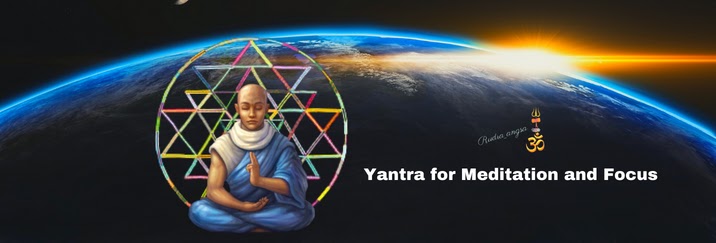

.png)
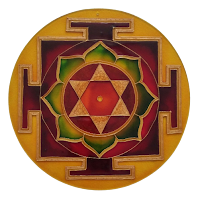

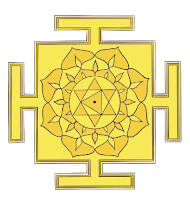

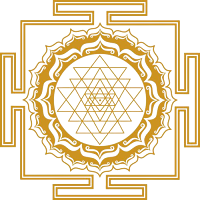
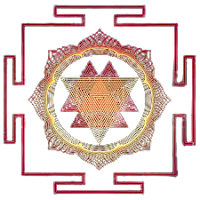



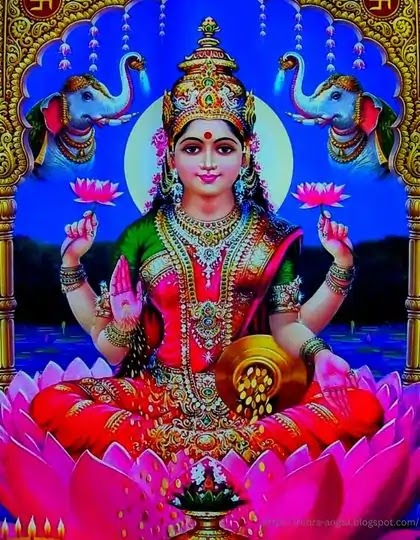

.webp)
